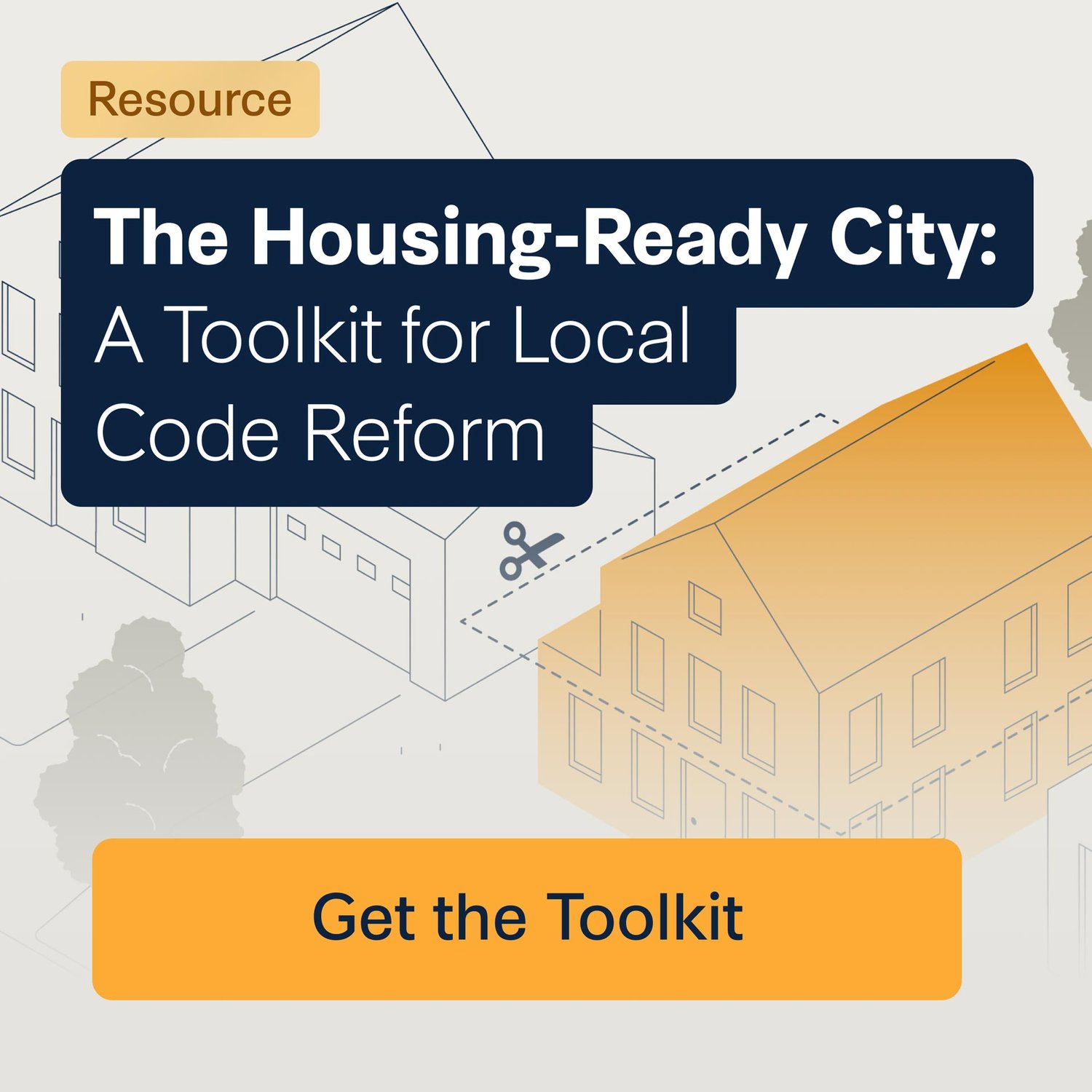Cities of Yes: 6 Places Opening the Door to More Housing
Across the United States, a growing number of cities and states are embracing common-sense housing reforms to tackle mounting challenges around affordability and availability. These “Cities of Yes” are making real progress on the Housing-Ready City Checklist—legalizing backyard cottages, reducing minimum lot sizes, eliminating parking mandates, and allowing modest multi-family homes by right.
By clearing the path for more homes in more places, they’re not just tweaking policy—they’re rewriting the rules to build stronger, more resilient communities.
Arkansas: A Big Win for Small Homes
Arkansas has stepped into national leadership by passing one of the strongest accessory dwelling unit (ADU) laws in the country. With the signing of Bill 1503—now Act 313—by Governor Sarah Huckabee Sanders, Arkansans will soon have the right to build small, self-contained homes like backyard cottages and garage apartments on their residential lots, without navigating a maze of red tape.
Municipalities are now barred from imposing many of the barriers that have long stifled this kind of gentle infill: no extra parking mandates, no owner-occupancy restrictions, no strict rules governing design, and no excessive fees. Application fees are capped at $250, helping to keep the process affordable. While local governments can still regulate short-term rentals and enforce safety codes, they can no longer block these modest homes from being built outright.
→ Read more: A Big Win for Small Homes in ArkansasDallas, Texas: Making Space for Small-Scale Housing
For years, anyone who wanted to build a triplex, fourplex, or courtyard apartment in Dallas was forced to follow the same strict building standards as massive high-rise complexes. That meant higher costs, longer timelines, and complicated approvals, even for projects with just a handful of homes. The result? Many builders simply walked away.
That’s no longer the case. Earlier this month, the Dallas City Council unanimously approved an update to the city’s residential development ordinance, allowing buildings with up to eight dwelling units–sometimes referred to as octoplexes–to be built under the simpler, less costly residential code. The change is a win for what planners and housing advocates call “missing middle” housing—duplexes, triplexes, fourplexes, cottage courts, and other small-scale multi-unit buildings that fill the gap between single-family homes and large apartment complexes. These housing types, once common in American cities, have become rare thanks to outdated zoning and building codes that favor either very large or very small developments—and make almost everything in between financially unworkable.
Dallas now has its sights set on eliminating mandatory parking requirements citywide.
→ Read more: Dallas Just Made It Easier to Build the Housing It Desperately Needs
Anchorage, Alaska: Eliminating Parking Mandates
The measure to end mandates won a unanimous 12-0 vote in the Anchorage Assembly in 2023. The effort was co-sponsored by a left-of-center optometrist and a right-of-center real estate broker, underscoring the wide appeal of practical housing solutions. Even the city’s mayor at the time, who had often found himself at odds with the Assembly, praised the move. Since then, Anchorage has eased restrictions on ADUs, supported small-scale multifamily housing, and encouraged neighborhood-serving development downtown. What began as a move to free up housing has sparked broader neighborhood improvements and a growing appetite for common-sense reforms.
→ Read more: Parking Reform Brings a Little Bit of Good for EveryoneSeattle, Washington: Embracing ADUs
Since the city eased restrictions in 2019, accessory dwelling unit (ADU) construction in Seattle has surged by 250%, with nearly 1,000 permits granted last year alone. For the first time in Seattle’s history, ADU development is outpacing single-family home construction. This shift is helping the city add much-needed housing without drastically altering neighborhood character or requiring massive public subsidies.
→ Read more: Small-Scale Housing is Making a Big Impact in Seattle
North Carolina: Common Sense, Common Good
North Carolina is saying goodbye to the zoning rules of the 1960s—and hello to a more flexible, future-ready approach to housing. A bipartisan set of bills moving through the state legislature would make it easier to build the kinds of homes North Carolinians actually need, from backyard cottages to triplexes. One bill (SB 495) would legalize accessory dwelling units (ADUs) statewide, while another (SB 497) would allow duplexes and triplexes in neighborhoods previously limited to single-family homes. Lawmakers are also eyeing a smart fix that would let more residential development happen in underused commercial zones.
But it’s not just about what can be built—it’s about how. SB 492, for instance, would tweak the building code to let apartment buildings up to 75 feet tall use just one stairwell (while still meeting safety standards), making smaller-scale projects more financially viable. Together, these proposals signal a clear shift: housing policy in North Carolina is becoming more adaptable, less partisan, and more in tune with the real-life needs of families, seniors, and first-time buyers alike.
→ Read more: North Carolina is Ditching 1960s Era ZoningYour hometown?
The next “City of Yes” could be yours. Take our quick Housing Ready Quiz to see how your community stacks up—you might already be on the Housing-Ready City Map, or you could be the one to help put it there.
Whether you're on the map or just getting started, the Housing-Ready Toolkit is your guide to the six most impactful policy changes any place can adopt to welcome more homes. With real-world case studies and actionable strategies, it's helping Strong Towns members spark change in cities across the country. Why not yours?






